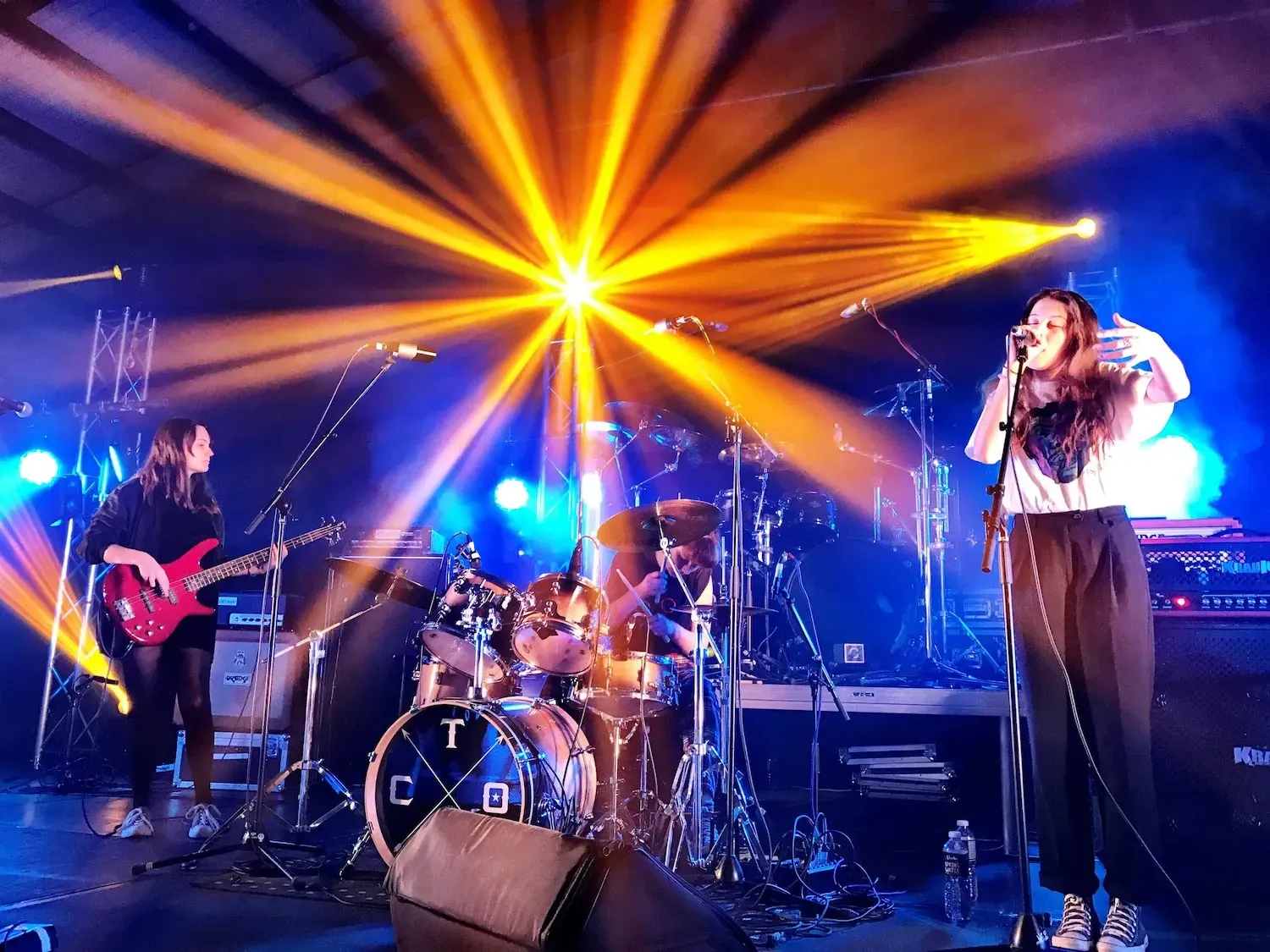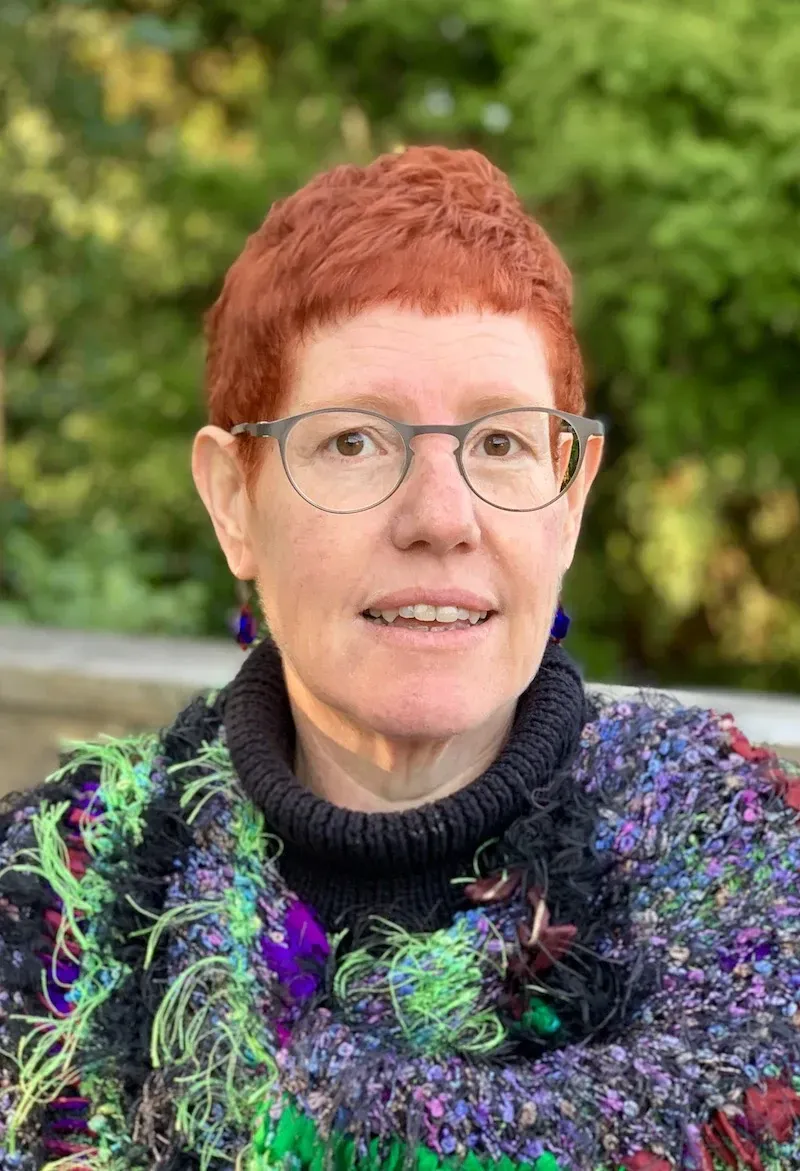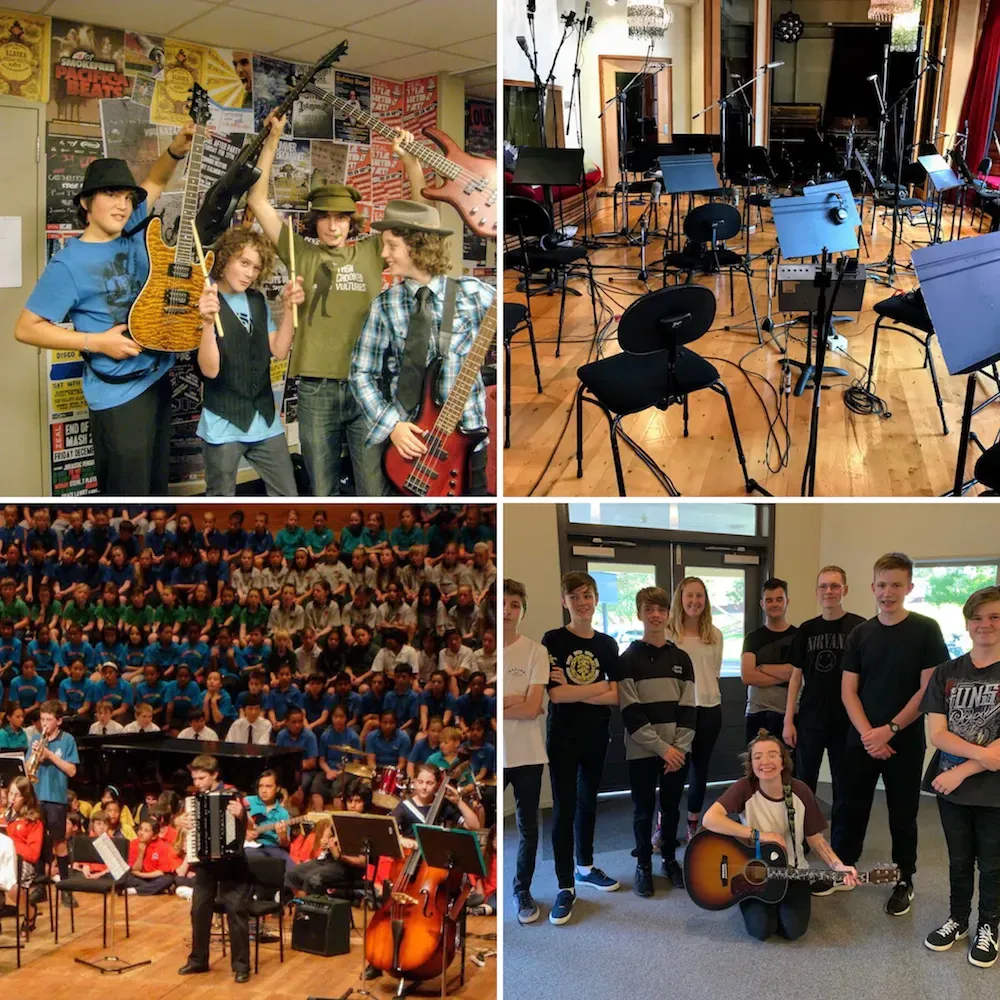Full STEAM Ahead
Written by

If music is so important to our cultural identity and well being why is it not being seen as a critical part of our school curriculum asks Jeni Little.
Jeni Little is Chair of MENZA (Music Education NZ Aotearoa)
She finds it impossible to comprehend a day without music - can you even imagine it? Music is everywhere. Music is life!
Quality Music Education addresses issues of equity, wellbeing, and representation, it also improves memory, literacy, numeracy, and fine motor skills.
It also encourages key 21st-century skills such as collaboration and critical thinking that cannot be replicated by technology. Music education complements all other learning and is a space where creativity is embedded and taught explicitly.
Music is also an industry that is increasingly important to New Zealand economically - it’s a big part of our stamp on the world, as well as enriching everyone’s daily lives and our Music industry fully supports music education in schools, as it builds both passionate musicians and discerning audiences of the future.
Yet, despite this, we still appear to have no government support behind our desperate need for a supply of specialist Music teachers … where currently there are none.
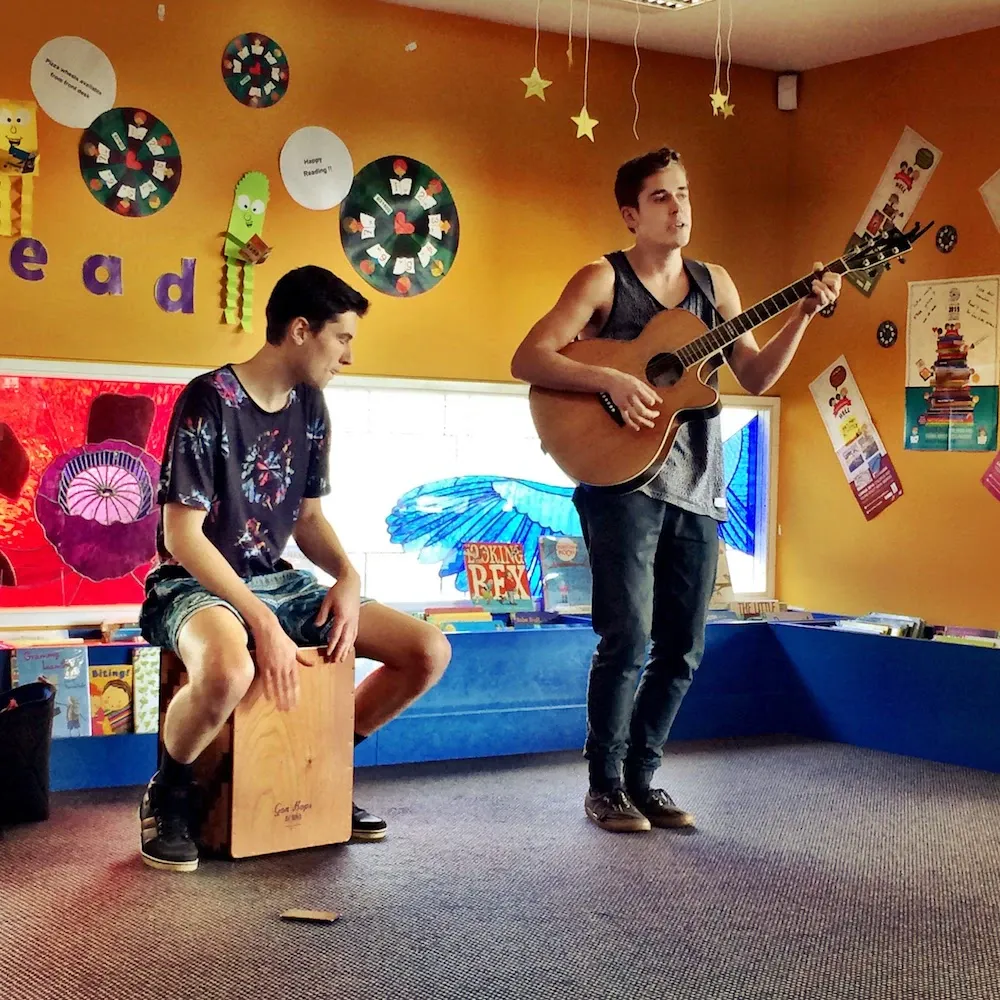
Performing in the community to enrich the likes of others - senior music students performing at the local library to celebrate NZ Music Month.
Photo: Jeni Little
STEAM not STEM - why have the ARTS been taken out of the priority curriculum
New Zealand used to have a dedicated group of specialist Arts advisors to continually provide subject-specific professional development, and mentor and support teachers in developing new skills and ideas.
"Music is everywhere. Music is life!"
For too long education has been a political football booted the wrong way. Our current system has been sideswiped by the idea that STEM subjects (Science, Technology, Engineering, and Maths) will advance New Zealand most effectively.
Yet if New Zealand is to prosper, it needs to create its own ideas and skills, and stop borrowing intellectual capital from others. Without the Arts and Humanities, how can we explicitly develop the creativity that leads to our own innovation? “Adding the Arts via a STEAM approach will serve our society far more powerfully than the reductive limitations of STEM.”
“Also aspects of STEM could even be taught through Music, as it encapsulates many fundamental elements, such as the very nature of sound.
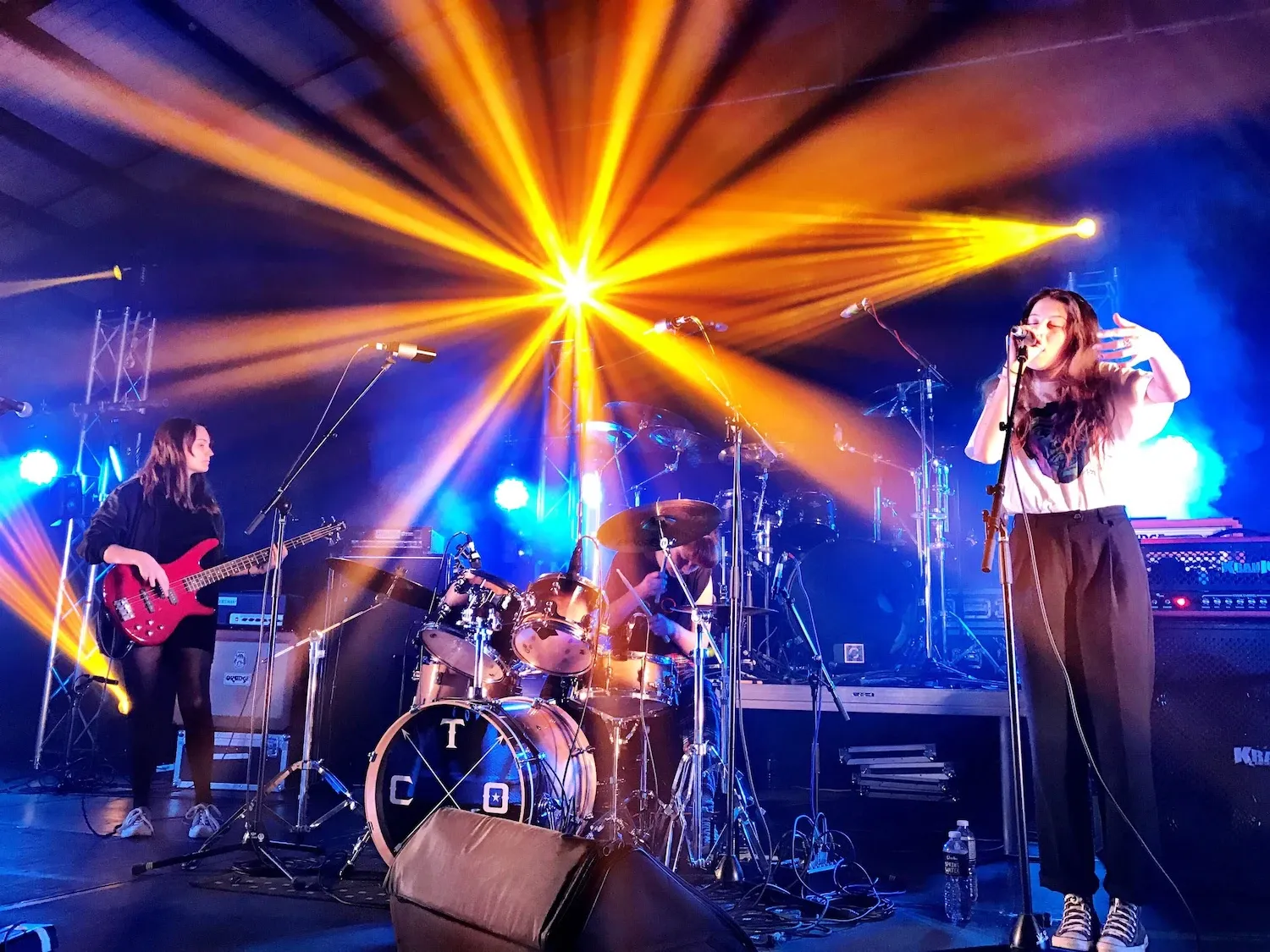
COURTNEY HATE: authentic learning. After forming in year 11, they performed at the National SMOKFREE ROCKQUEST finals.
In their final year of school, they performed at the APRA Silver Scroll awards and released their EP. (Photo by Jeni Little)
What’s happened to our specialist music teachers?
New Zealand’s world-class Arts Education system has been left to slowly wither through underinvestment. Arts programs were minimised as schools became driven by assessment, and largely unsupported through a lack of quality teaching resources. The Ministry of Education once developed these for teachers and supported their use, but there has been a move away from subject specialists within the Ministry, and these resources have not been a priority for nearly ten years.
Once qualified, music teachers are now expected to find their own way with little continuing development or leadership. With the dissolution of music advisors over the last decade, this role has fallen on the shoulders of the few passionate experienced music educators that haven’t already left teaching, together with the charitable and voluntary music education associations (eg. MENZA).
MENZA “only survives through the voluntarily work of its members who firmly believe that it is needed to safeguard the subject we feel deeply passionate about.”
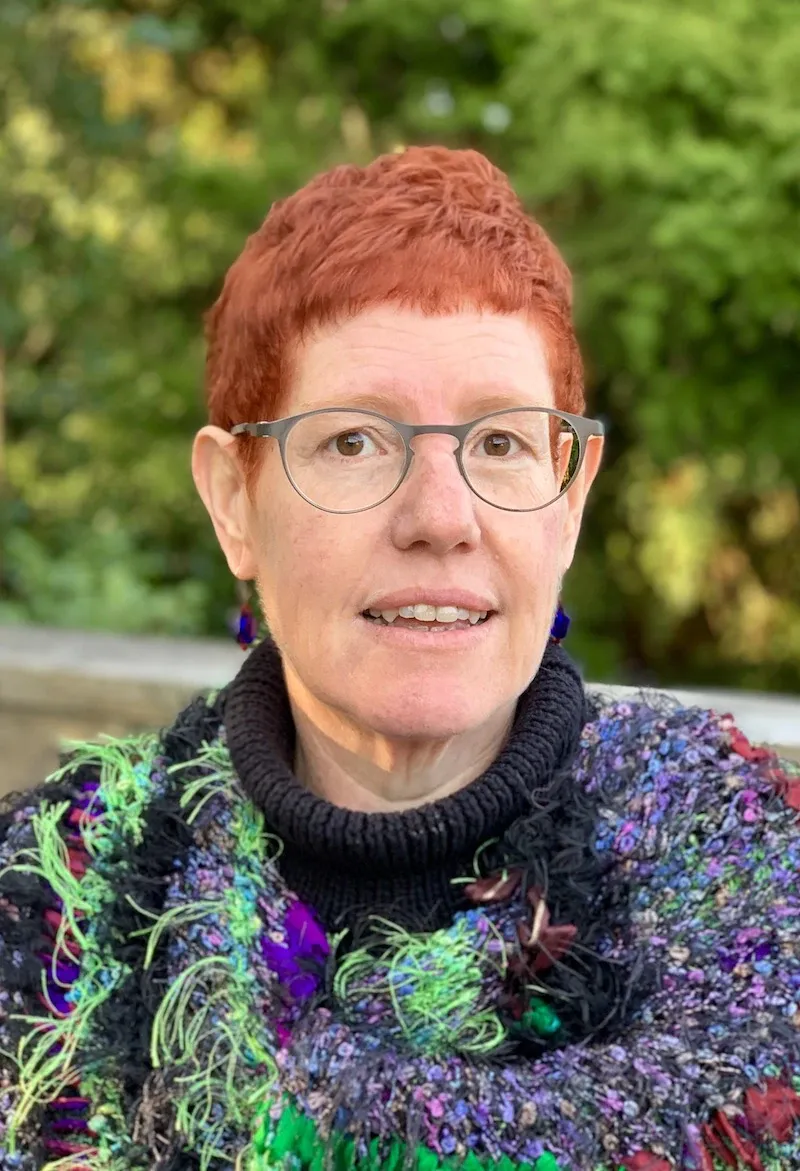
Jeni Little
Music to the ears of early development in our kids
Early childhood, primary and intermediate schools in particular need to educate young ears and aural minds. Pre-service teacher training regimes currently consist of a paltry six hours of music focus in total across three years of learning! How are new teachers supposed to develop even rudimentary musical confidence to teach this critical group of young New Zealanders? Not long ago they were all confident to lead their classes in some form of musical activity.
"Music is an outlet of self-expression. It builds self-esteem and provides a pathway to self-empowerment."
Music is vital to wellbeing, identity, and self-confidence. It’s a safe place where young people feel valued and heard. It creates identity, and the badges we wear outwardly signal our musical taste and help us locate our cultural ‘kin’. Music is an outlet of self-expression. It builds self-esteem and provides a pathway to self-empowerment.

Clockwise from top left: Junior students about to head on stage; Roundhead Studios; the annual APPA music festival held at the Auckland Town Hall;
Junior music students ready to take the stage in a collaborative Arts Festival (all photos by Jeni Little).
A call to action - Let’s get Back to the Future
The answer to our teacher shortage lies in how we used to do things … New Zealand once had an incredibly forward-thinking and innovative approach to learning after Clarence Beeby’s appointment as Director of Education in 1939. Beeby believed that “all persons, whatever their ability, rich or poor, whether they live in town or country, have a right as citizens to a free education of the kind for which they are best fitted and to the fullest extent of their powers”.
This golden age of arts centred education is documented in the film “The heART of the Matter” about the legacy of Gordon Tovey and his team of Arts Advisors (one of whom was my mother in law). New Zealand has moved away from that model as successive governments asserted their agendas, most recently via neo-liberalist competition. Teaching was once a respected profession in New Zealand, but through a lack of dialogue and trust, teachers have lost much control of our practice, craft, and professionalism.
Let’s bring back the specialist music teacher and ensure that music, the arts and humanities once again become a vital part of our educational curriculums.
We are celebrating NZ Music Month and in collaboration with NZ Music Commission, our stories this week will focus on the fabulous talents in Aotearoa’s music industry, on stage and behind the scenes. Find this week's music-inspired stories here, here, here and here - thank you for following along! #nzmusicmonth2019 #nzmusic #discoverlivenz #nzmusicmonth #artsmatter
